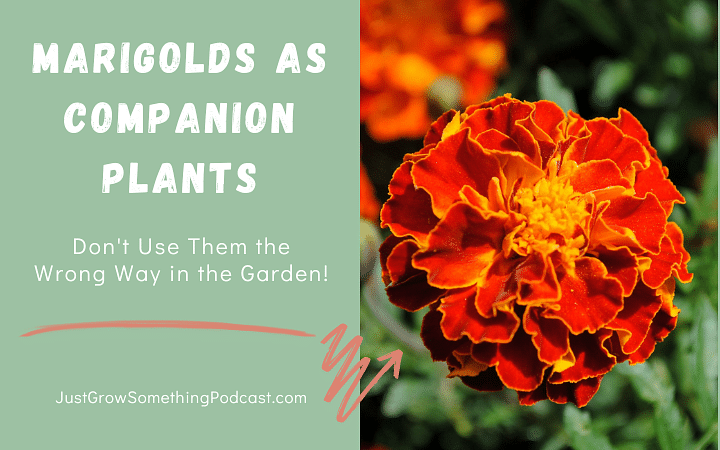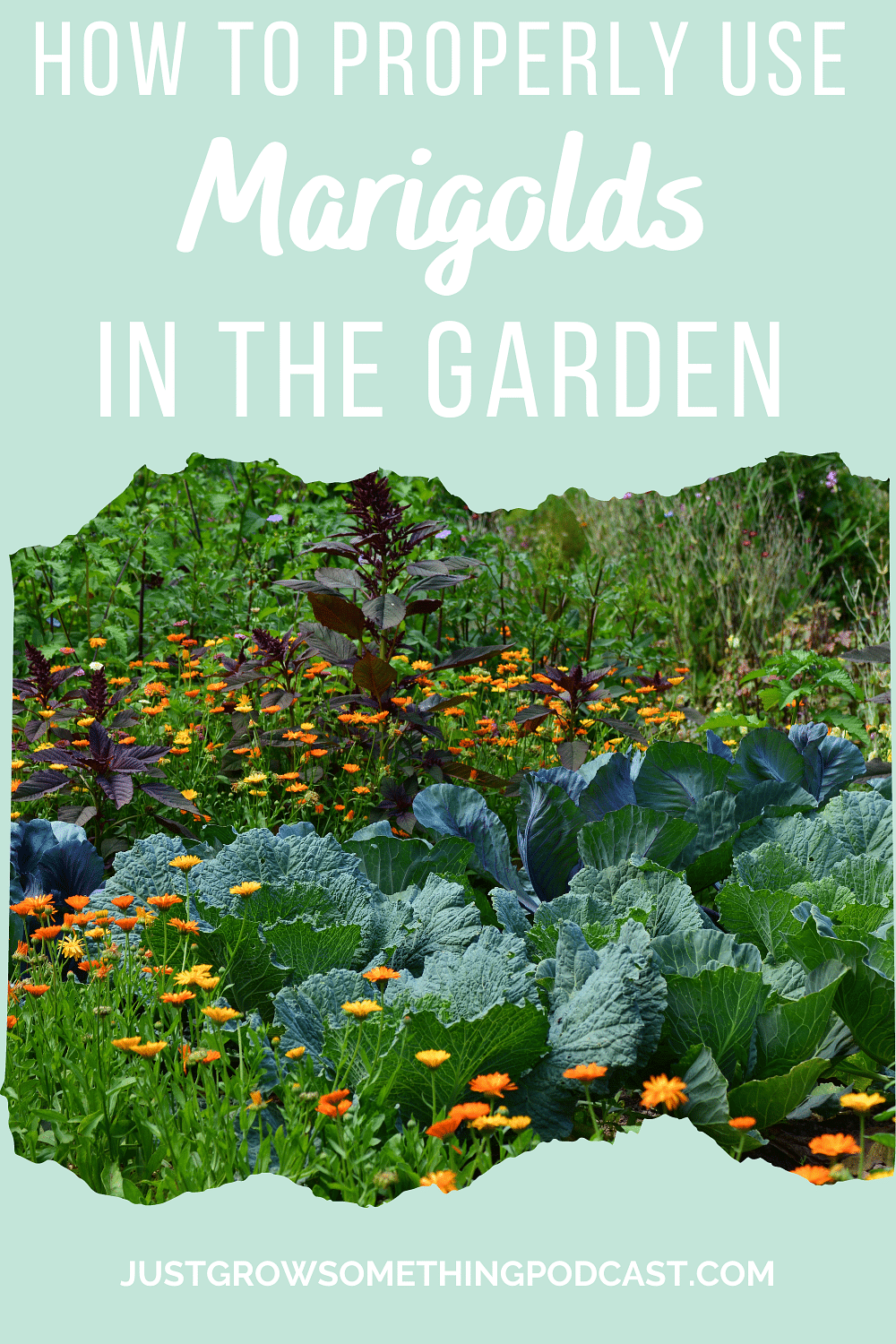
Marigolds are beautiful and popular flowers that can play an important role in the health of your garden. These plants have been the subject of much discussion and research in the gardening community regarding their value as companion plants. This article will explore the benefits and potential drawbacks of using marigolds in your garden, as well as the pests they attract and repel. The majority of research has been done on two species, Tagetes erecta and Tagetes patula, so that’s where we’ll focus here.
 Benefits of Marigolds as Companion Plants
Benefits of Marigolds as Companion Plants
It is widely believed that marigolds are excellent companion plants, as they are famous for their ability to repel harmful pests and attract beneficial insects. They are also said to be useful in improving soil quality. Marigolds have been known to repel nematodes that can damage plant roots, especially in vegetable gardens, by releasing chemicals that are toxic to them. They are also believed to be effective at repelling other common garden pests, such as whiteflies and aphids.
The French marigold, in particular, has been shown to attract hoverflies, which are one of the most significant insect predators in the garden. Hoverflies feed on pests such as aphids and mites, making them a critical ally to any gardener. The presence of marigolds in your garden could help attract these beneficial insects and keep the harmful pests under control.
Marigolds are also great for improving soil quality. They produce a chemical called alpha-terthienyl, which is toxic to some soil-dwelling nematodes. This chemical is beneficial in combating root-knot nematodes or those that attack vegetables such as tomatoes, potatoes, and peppers.
Potential Drawbacks of Using Marigolds as Companion Plants
Although marigolds have many benefits in the garden, there can be potential drawbacks. One of the most significant issues is their potential to attract spider mites, which can cause damage to the leaves and flowers of your plants.
Another potential issue with marigolds is that they can be attractive to some of the exact insects we’re trying to keep away from our crops. Using marigolds indiscriminately as companion plants may actually lead to more harm than good. If we’re trying to repel squash bugs from our zucchini, for example, we should be planting the marigolds away from the zucchini plants since they actually attract squash bugs. If we’re trying to repel aphids, though, we should be planting them in closer proximity. Understanding which pests are attracted and which are repelled is key in how we use marigolds as companion plants.
Pests that Marigolds Attract and Repel
Before using marigolds in the garden, understand which insects will be drawn to them and which will be repelled. Use this information to decide if the marigold should be planted in and amongst your plants to repel pests or planted further away to draw pests away from your crop.
Marigolds are good at repelling:
- Aphids
- Whiteflies
- Melonworms
- Pickleworms
- Codling moth (a significant pest of apples and other pomme fruits)
- Root-knot nematodes
- Diamond-back moth
- Cabbage stem flea beetle
Marigolds are attractive to:
- Squash bugs
- Squash vine borers
- Cucumber beetles
- Leafhoppers
- Spider mites
- Tarnished plant bug
- Beet armyworm
- Cabbage looper
- Tobacco budworm
- Flea beetles other than cabbage stem, like striped, western black, etc.
- Thrips
In addition, marigolds are attractive to many beneficial insects like ladybeetles, hoverflies, parasitoids and other predatory insects.
Marigolds can provide many benefits in the garden, but it's also important to take potential drawbacks into account when using them. Choosing the right species and controlling their growth are crucial to prevent their invasive nature. Marigolds also have their individual beneficial properties when grown alongside other plants. Overall, marigolds are an attractive and useful addition to any garden when grown correctly, and their benefits are well worth exploring.
Your Friend in the Garden,

Resources: The Great Marigold Debate - Ep. 147
